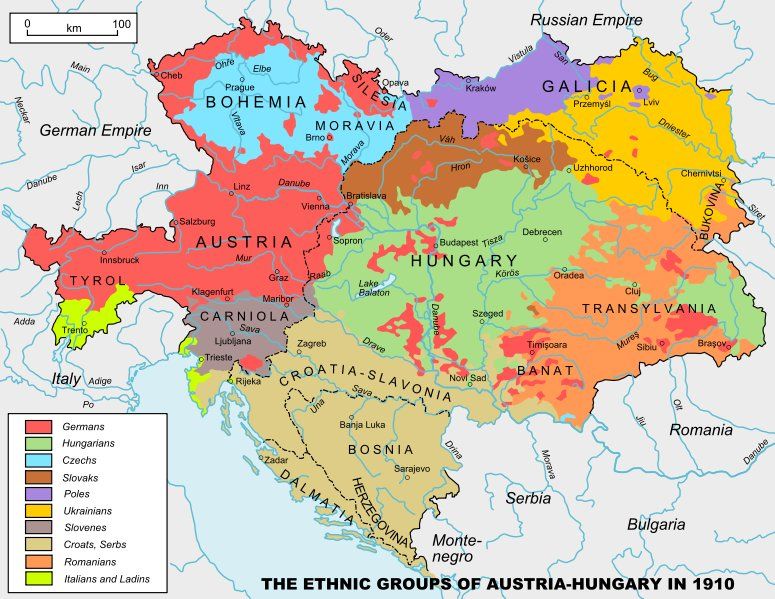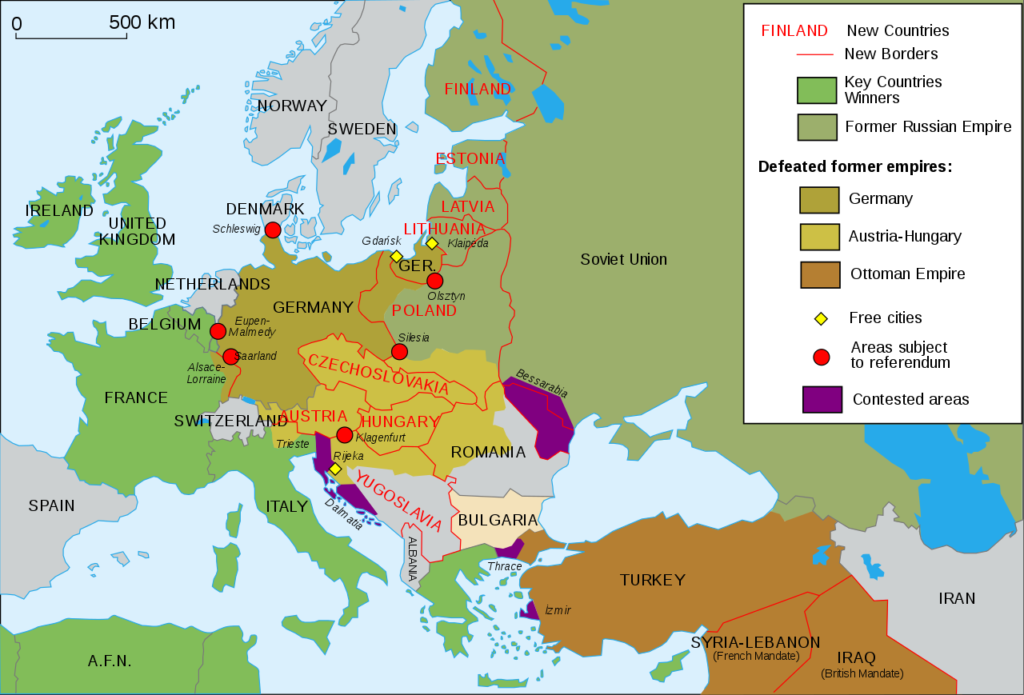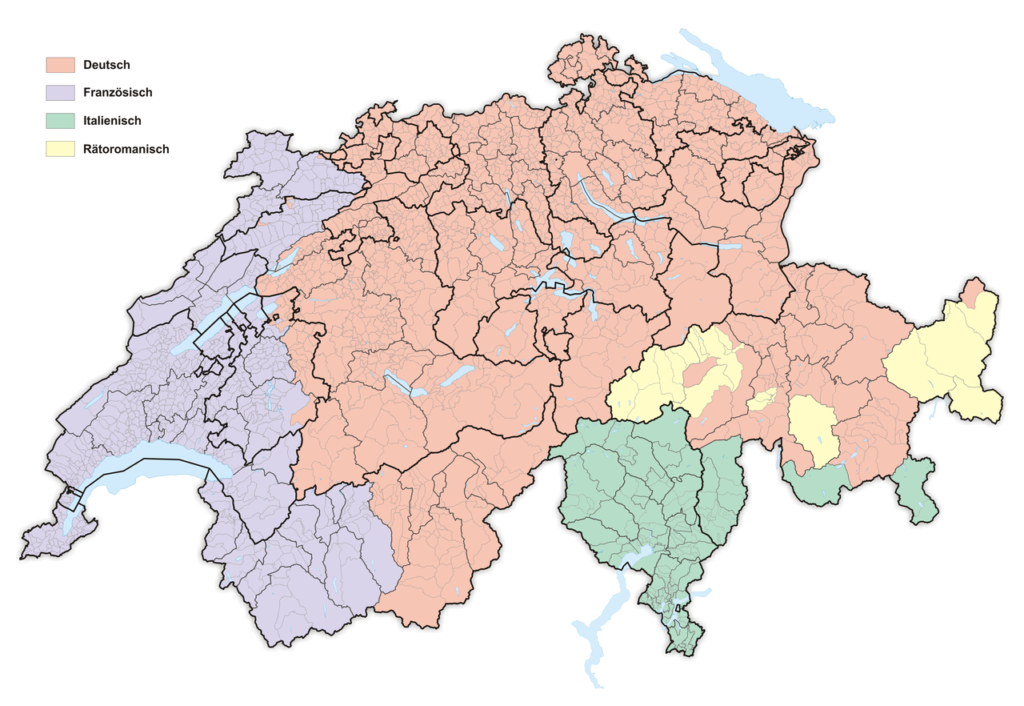Below is a map of the Austro-Hungarian Empire with its various ethnic groups in 1910:


The federalism of the United States consists of 50 States. The whole country of over 300 million people elects a President. Each State elects two Senators to Congress — by thousands and millions of people. The number of Representatives to Congress is relative to the population of the State. But this too is by thousands and millions of people voting. As far as the government of a State is concerned, the Governor and the Representative to the State Legislature are also elected by thousands and millions of people.
This huge number of voters is also present on the municipal level. I live in Chicago which has a Mayor elected by the nearly 3 million citizens. There is also a City Council of 50 Alderman, each elected at 50 Wards by some 40,000 voters each.
I describe the federalism of Switzerland as Moderate as contrasted with that of the United States. Its territory is much smaller than that of the United States, and its population of nearly 9 million approximates the population of Greater Chicago (i.e., including the surrounding suburbs of Chicago). It consists of 26 Cantons, grouped by languages (German, French, Italian, and Romansh).

My objection to both the government of the United States as well as to the government of Switzerland is that they base themselves on, what I call, Mass or Macro-Democracy in which thousands and millions of people vote either for politicians or laws. Instead I favor Micro-Democracy as a unit of government of roughly 150 voters. This is my ideal of anarchism. Lately it has been called Participatory Democracy, Municipal Confederalism, Strong Democracy, and a system of Nested Councils. I found the following article clearly explaining this point of view [it also has relevant links!]: Sveinung Legard, Scaling Up: Ideas about Participatory Democracy
